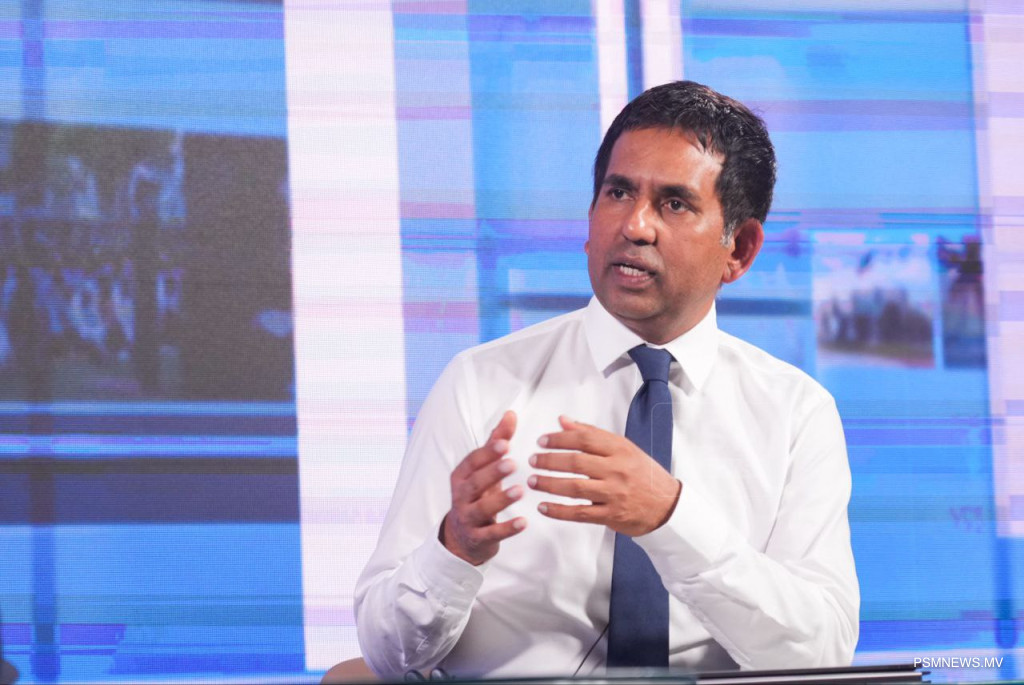
Mohamed Saeed, Minister of Economic Development and Trade, has sharply criticised the previous administration’s handling of the economy, attributing the Maldives’ current financial strain and rising consumer prices to what he described as "flawed policies" implemented during the Covid-19 pandemic. Speaking on PSM News’ “Raajje Miadhu” programme, Minister Saeed accused the former government of economic mismanagement that resulted in “unprecedented debt in 40 years.”
In outlining the fiscal legacy of former President Ibrahim Mohamed Solih, Minister Saeed pointed to a series of decisions that, he argued, undermined the country’s financial stability. When the Maldivian Democratic Party (MDP) assumed office in 2018, the state’s reserve reportedly stood at USD 1 billion, with the Sovereign Development Fund holding more than USD 250 million. Within a year, the national budget had expanded to USD 3.24 billion, up from USD 1.82 billion.
The minister’s criticism extended to the management of pandemic-related aid. Despite receiving billions of Rufiyaa for Covid-19 recovery, he contended that actual expenditure was disproportionately low. He also cited an outstanding sum of USD 590.14 million owed to state-owned enterprises. Taken together, Minister Saeed claimed, these actions contributed to a cumulative debt of USD 8.11 billion.
Concerns over fiscal discipline were compounded, Minister Saeed said, by the former administration’s approach to monetary policy. He accused officials of exacerbating inflation through central bank financing, commonly referred to as “printing money”, and cited statistics indicating that USD 518.15 million had been printed during President Solih’s tenure.
Public discourse at the time, he noted, reflected growing unease over rising prices. "Currently, certain officials from the MDP, including some former ministers, are discussing the increase in prices. During the administration of President Ibrahim Mohamed Solih, specifically between 2021 and 2023, reports concerning price trends were widely covered in Maldivian newspapers. These discussions were prominently featured in headlines," Minister Saeed said. "Indeed, those very officials acknowledged that prices were escalating and projected further increases in the future. However, at that time, these officials refrained from attributing this escalation to the printing of money and the subsequent weakening of the Rufiyaa’s value."
Addressing the economic fallout, Minister Saeed said the current administration, led by President Dr Mohamed Muizzu, is pursuing a series of measures aimed at stabilising the economy and curbing inflation. Among them is the establishment of the Maldives Industrial Free Zone, a dedicated entity intended to facilitate bulk storage of goods across the archipelago and improve distribution networks.
Efforts to monitor and manage the cost of essential goods are also underway. Minister Saeed described the development of an Essential Commodity Index that will track prices for 162 items, including 111 household and food preparation products, 39 varieties of fruits and vegetables, 10 fish and fish products, and various energy items. The index, he said, is designed to identify price trends and enable timely interventions.
Minister Saeed concluded by reaffirming President Muizzu’s commitment to guiding the economy towards stability and implementing comprehensive solutions to address inflationary pressures.
